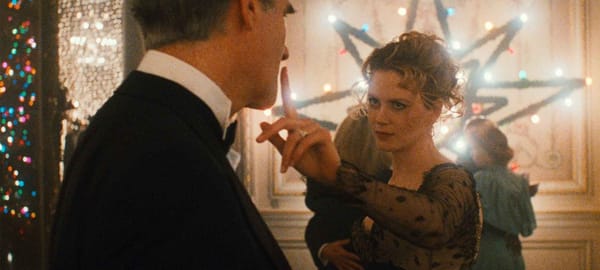Inneresting #253 - Hollywood Ruined (x) for Me
Solve for all values of (x)

Calling something fiction removes the expectation that the story told actually happened exactly as depicted. But what about those places where fiction creates or reinforces false ideas for the audience? This week is all about when film and television skew an audience's understanding of how something in the world actually works.
High School
Cherry-Tape Magazine considers that a big audience for high school coming-of-age films and tv shows includes people who aren’t yet in high school, but are looking for a preview of it. The inflated sense of stakes for these stories can create a distorted view of what’s to come:
They’re portrayed as all of your best, most important memories and everything will matter. Like I mentioned before to an extent, yes, because everything you do will lead you to become the person you are today (hopefully, not shitty) but it isn’t the end all be all.
Tricia Mahler singles out She’s All That and 10 Things I Hate About You for creating negative expectations about high school dating that lead her to make preemptively defensive choices in her behavior and personality.
Vera Paulino contexualizes the importance of Prom in teen movies with the origins of the concept and its connections to debutante balls and a focus on pushing teens to conform to set ideas of wealth, privilege, and beauty.

Love(?) & Marriage
InkLattice breaks down the elements of "the sitcom gender feedback loop,” and how the most common tropes used in sitcoms about married couples worked to reinforce stereotypes. Also featured: Examples of more recent sitcoms attempting to flip the script and present healthier examples of partnership.
Nicola Brayan questions the Boomer Humor version of marriage, and pushes back against the clammy idea that the only real marriage is a sacred bond between a scold and a man-child.
Jeremy Glass points out how married couples’ sexual relationships (or lack therof) in TV sitcoms negatively influences people’s ability to take a more nuanced look at actual issues of intimacy and trust in their own relationships.

Mythbusting Geostorm Round
- Stu from Debunked gets into the science of why it’s unlikely (but not impossible) for cars to explode in a giant fireball.
- Jackson at Skip Intro outlines how Law & Order distorts the realities of criminal trials, and why you shouldn’t use the show as a basis for understanding your rights.
- Sonia Weiser checks the price tag on tv characters’ wardrobes to find that just about everyone is dressing beyond their means (and some of the reasons this is the norm).
- Watch Jordan Ellenberg (a real mathematician) offering cheers and jeers to depictions of math and mathematicians on screen.
- Phanimations does a deep dive into the math of Good Will Hunting, and how the movie still resonates for its human drama, even with muddled representations of math.
Even if the details of the story are fictional, the audience expectation of accuracy (or at least believability) can create impressions about how the world actually works. See enough stories about how married couples are always fighting, and that seed can sprout in the mind to think that a toxic relationship is actually the norm.
And every story we tell each other has a chance to help ideas take root.
👋 Are you new here?
Inneresting is a weekly newsletter about writing and things that are interesting to writers. Subscribe now to get more Inneresting things sent to your inbox.
Previously on Inneresting…
In case you missed it, last issue’s most clicked link, Nico Swan uses the work of Ryan Coogler and Steven Spielberg to hone in on how large-scale audience pleasing movies don't work if they're trying to be something to everyone. Radical specificity brings something deeply personal to a story.
What else is inneresting?
- Marita Alonso speaks with Jessa Crispin, author of What Is Wrong with Men: Patriarchy, the Crisis of Masculinity, and How (Of Course) Michael Douglas Films Explain Everything.
- Jason Hellerman on JRR Tolkien’s description of worldbuilding as an outgrowth of plot instead of a prerequisite to writing the story.
- If you’re anything like me, you made some questionable video game system purchases in your youth. This look at modding the Sega Nomad into a viable portable may appeal to you.
And that’s what’s inneresting this week!
Inneresting is edited by Chris Csont, with contributions from readers like you and the entire Quote-Unquote team.
Are you enjoying this newsletter?
📧 Forward it to a friend and suggest they check it out.
🔗 Share a link to this post on social media.
🗣 Have ideas for future topics (or just want to say hello)? Reach out to Chris via email at inneresting@johnaugust.com, Bluesky @ccsont.bsky.social, or Mastodon @ccsont@mastodon.art.




